-
![img]()
How to Quickly Cool Your Mouth Down from Spicy Foods
Zakwan Shah
December 31, 2024
4 min
Some of us may derive a little pleasure from pain, especially when it comes to what we eat.
After all, chillies are a staple in Malaysian cuisine.
While many adults can handle their spice fine on their own, children may be a little more sensitive to those red-hot delicacies we know and love so much.
But, of course, tasting your first spicy dish is a rite of passage for every Malaysian; a trial by fire, figuratively speaking.
So, if your child has expressed a desire for the fire, it’s important to prepare some flame extinguishers, just in case they bite off more than they can chew.
But before we get into the tips, here’s what you need to know about why spicy food is so hot.Why Spicy Foods Are So Hot
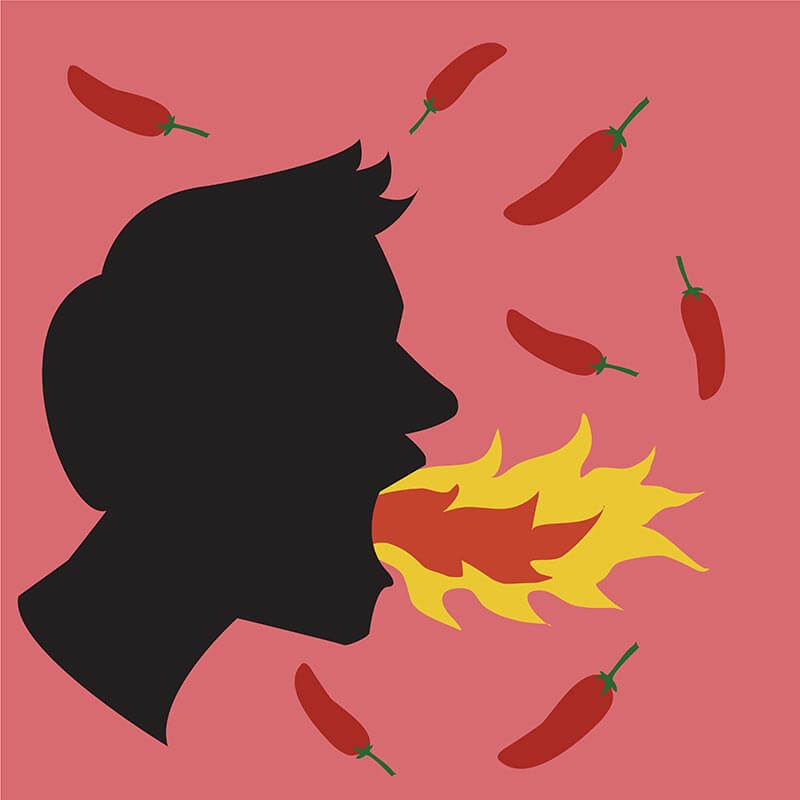
Unlike the five senses we learned about as early on as kindergarten, 'spiciness' is not part of the five flavours that is detected by our taste buds.
We can taste sweet, sour, bitter, salty and 'umami', but not spicy.
Instead, the heat we feel when we eat chilli, wasabi, pepper, etc. is a form of chemical irritation caused by a substance called 'capsaicin'.
This is the thing that makes chillies so spicy because they're chockful of capsaicin, especially in their seeds and in their little white inner membranes.
When our bodies are exposed to capsaicin, our nerves endings detect it as a threat and send out a warning. Which causes certain receptors to flare up.
It’s also the reason why we can often feel spiciness in our hands (when we handle spicy food). A sort of tingling sensation.
Natural capsaicin released when we use certain plants in our food is rarely dangerous.
But when it comes to underage children, it pays to be a bit more vigilant.
If your child is ready to handle some heat, keep reading.How to Help Beat the Burn
Dairy

According to this 2019 study, the most effective beverages to counteract the effects of capsaicin are whole milk and skim milk.
Scientists have attributed this heat-dousing effect to dairy’s protein content, casein, which can bind to capsaicin molecules.
This renders the fiery chemical impotent, ensuring that it doesn’t spread or linger on your tongue longer and causing you even more pain.
Some proponents of the dairy method also swear by sour cream, which is said to be particularly effective against combating the burn from spicy foods.Sugar

Your kids will probably enjoy this but sugar is also another effective method against spiciness.
Not as effective as dairy, but still effective enough to help alleviate some of the heat.
The 2019 study also found that Kool-Aid had the most promising scores when tested against capsaicin exposure.
Apparently using sugar to alleviate pain isn’t new.
While we may often indulge in sweet things as comfort food (because existing can be painful), sugar is also used to help dull physical pain.
This is what’s called sucrose analgesia.
So, combining what we learned from the last point, something sweet and dairy-rich like milkshake or ice-cream will definitely help soothe the burn.
Just be careful not to overdo it on the sugar.Acid
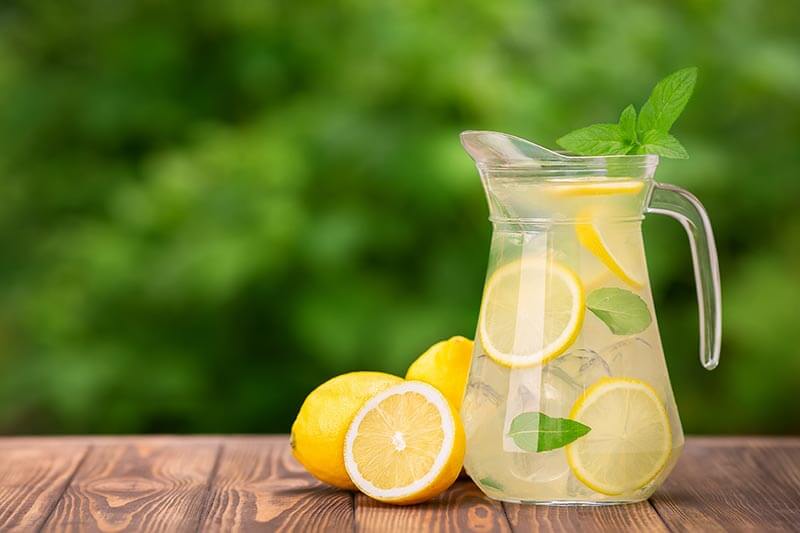
Capsaicin is an oil-based chemical with alkaline properties, so some people have found that acidic foods and drinks really help with diluting the burn.
A glass of orange juice, lemonade or any other sour beverages may just be the remedy you need when trying to counteract spicy foods.
This tip may not be as effective as the previous two, but it’s worth a try, especially when used in conjunction.
So, something sweet, dairy-rich and acidic like lassi, a sweet yoghurt-based drink, may actually do the trick.Ice

Ice (not cold water) is the last resort when it comes to immediately soothing the burn of spicy food.
While the previous tips help neutralise any lingering traces of capsaicin in your mouth, its aftereffects are a lot harder to counteract.
Your nerve endings will continue firing alarm signals because the chemical has triggered a sort of biological chain reaction.
There's a chance your tongue will sting for a few more minutes even after you’ve administered any remedy.
So, a quick way to stop or a least slow down the burn, is to chew or suck on an ice-cube.Soothing the Burn

Being Malaysian and enjoying spicy food is at times inseparable. No matter how hot or mild you like your food.
We all need a little bit of heat in our lives.
And as your kids grow and learn to understand their own limitations, they too will find just the right amount of spiciness they can handle. Even if they’re notorious picky eaters.
But in general, if you are preparing something with chillies, it’s important to keep your kids in mind.
Spicy foods are notorious for causing diarrhea and other stomach issues like acid reflux.
So, even if your kids have begun to enjoy their fiery foods, you should always use spices in moderation.
And if needed, do use these tips the next time your kids try their hand at some spicy foods.
Disclaimer: The information provided in this article is for informational purposes only and should not be considered as medical advice from Motherhood. For any health-related concerns, it is advisable to consult with a qualified healthcare professional or medical practitioner.
For more insightful stories and fun recipes, stay tuned to Motherhood Story!
-
![img]()
Can An HIV-Positive Woman Have a Healthy Pregnancy?
Asmu'i Azmi
May 08, 2024
5 min
HIV is a controversial subject in many nations, including Malaysia.
Being diagnosed with the condition is at times considered humiliating. Even if some people become infected without their knowledge.
But before I go any further into this subject in connection to pregnancy, I'd like to shine a light on the importance of HIV awareness.What Should You Know About HIV?
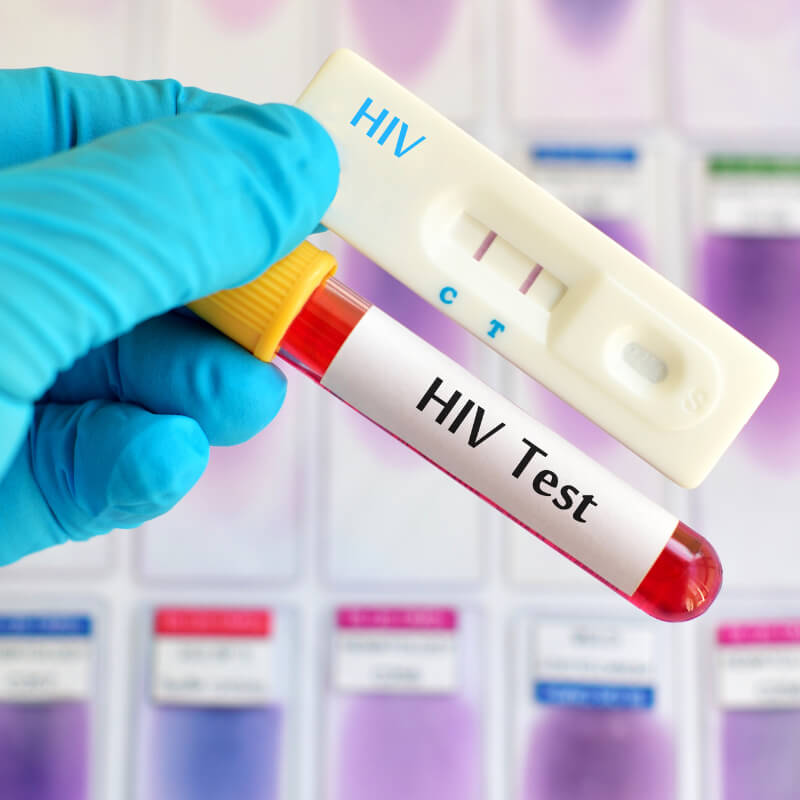 Image credit: Canva
Image credit: Canva
According to Centres for Disease Control and Prevention (CDC), Human Immunodeficiency Virus (HIV), is a virus that attacks the body's immune system.
Late diagnosis and if left untreated, HIV may lead to AIDS (acquired immunodeficiency syndrome). AIDS is the final stage of HIV disease and always fatal.
At present, there is no effective cure for HIV/ AIDS.
However, with early diagnosis and treatment with antiretroviral therapy (ART) will likely result in undetectable viral load in the body.
Thus, they can lead long healthy lives and will not transmit HIV to their loved ones.
HIV may spread through contact with infected body fluids such as blood, semen, pre-seminal fluid, rectal fluids, vaginal fluids, and breast milks.
According to the World Health Organisation (WHO), the following behaviours and conditions may increase risk of getting HIV infection::- having condom-less anal or vaginal sex
- having other sexually transmitted infection (STI) such as syphilis, herpes, chlamydia or gonorrhoea
- engaging in harmful use of alcohol and drugs in the context of sexual behaviour
- sharing contaminated needles, syringes, and other injecting equipment and drug solutions when injecting drugs
- receiving unsafe injections, blood transfusions and tissue transplantation, and procedures that involve unsterile cutting or piercing
- accidental needle stick injuries among healthcare workers
According to The Global AIDS Monitoring Report 2023 by the Ministry of Health Malaysia, sexual transmission has become the main mode of transmission over the last decade in Malaysia.
In addition, more than three quarters of HIV new infections were reported among people aged 20 to 39 years old in the year 2022. 70% of the new patients were diagnosed at a late stage.
Thus, it is necessary to educate especially the young people in Malaysia on knowledge of HIV infection, its preventive measures and testing.
In the first few weeks after being infected, people may not experience symptoms. Others may have flu-like illness including fever, headache, rash, and sore throat. So, you can only know if you have the virus with a HIV test.
Taking the test at a Government Health Clinic before getting married is mandatory for Muslim couples and encouraged/optional for other religions.
For those with high-risk behaviours, they are recommended to do annual HIV testing for early detection.
Unfortunately, there is still a lack of disease knowledge and awareness in our community. Therefore, the finding of a woman being unexpectedly HIV tested positive and pregnant concurrently is not uncommon in our practice.If An HIV-positive Patient Discovers She's Pregnant
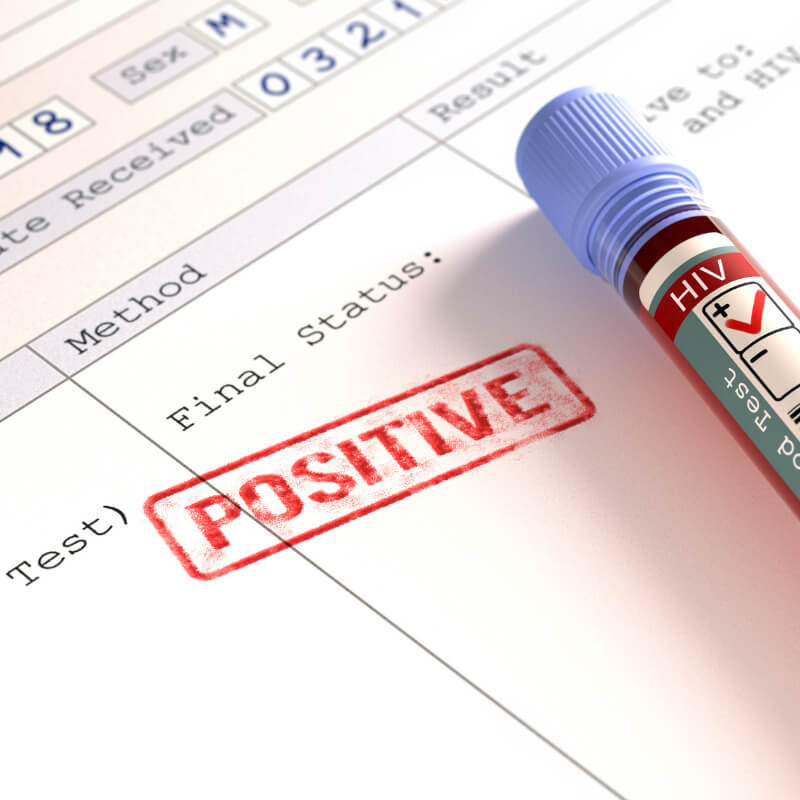 Image credit: Canva
Image credit: Canva
While detailed information on her social and behaviour risk factors are important to be elicited for best pregnancy outcome to both mother and baby, it is done not to find fault. Other infectious screening such as syphilis and hepatitis B screening would be done as well.
Antiretroviral therapy (ART) is treatment of people infected with human immunodeficiency virus (HIV) using anti-HIV drugs.
In this case, the HIV-positive mother would receive ART medication to reduce risk of transmitting HIV to her unborn child.
Most ART medications are safe to be used in pregnancy and able to reduce the viral load, hence minimising the risk of mother-to-child transmission.
Mother-to-child transmission may occur during pregnancy, while in labour and delivery or during breastfeeding.
Extensive counselling will be done regarding benefits and risk of ART medications before starting her treatment.Going Through Pregnancy As An HIV-Positive
 Image credit: Canva
Image credit: Canva
The expectant HIV woman will be required to be compliant to her ART medications throughout her pregnancy to suppress the virus.
ART medications should be taken as soon as possible once she found out that she was pregnant and continue till delivery.
In real practice, the largest proportion of expectant HIV women had been living with HIV and already on ART at antenatal care booking.
They should keep taking their ART regimen throughout their pregnancies. Being on treatment before, during and throughout pregnancy and birth, minimises risk of mother-to child transmission.What About During and After Childbirth?
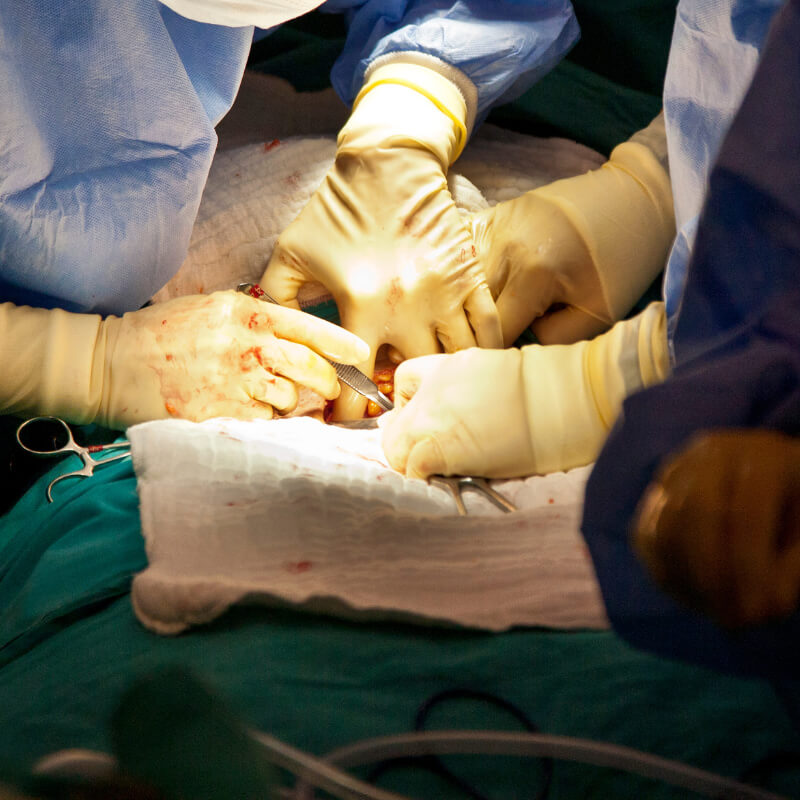 Image credit: Canva
Image credit: Canva
Vaginal delivery is permissible if the viral load level is low.
Caesarean delivery should only be done if the viral load level is significant or if there is obstetric contraindication for vaginal delivery.
Once a baby is born, breastfeeding is best avoided and not recommended.
In Malaysia, all HIV-exposed infants get free antiretroviral (ARV) prophylaxis and free placement feeds for two years.
This practice resulted in prevention of more than 98% mother-to-child transmission in HIV-exposed infants in 2017 compared to 30-40% had there been no intervention (The Global AIDS Monitoring Report 2023, Ministry of Health Malaysia).
Malaysia has been certified as the first country in Western Pacific Region to have eliminated vertical HIV transmission.
All HIV-exposed infants should have HIV testing at birth and at 6 weeks.
The national surveillance system reported 100% of HIV-exposed infants receiving HIV tests within 2 months in 2021 with no new HIV infections among infants born to HIV positive mothers in Malaysia.Never Be Afraid to Seek Personal Consultation
 Image credit: Canva
Image credit: Canva
It is important to take pregnancy seriously when you are HIV positive.
The most crucial part of living with HIV is to be insightful. This includes good compliance to ARVs medicine prescribed, eating healthy and exercising.
For women who have been living with HIV positing and already on ART, preconception counselling with your doctor is important before you embark into pregnancy.
Your doctor will guide you on the following:- What is the safest way to conceive?
- When is the safest time to conceive?
- Will HIV cause problems for me during pregnancy or delivery?
- Will my HIV treatment cause problems for my baby?
- What are the pros and cons of taking HIV medicine while I am pregnant?
- Is my viral load undetectable?
- How do I avoid transmitting the virus to my partner(s), or my baby during conception, pregnancy, and delivery?
- What medical and community programs and support groups can help me and my baby?
- What birth control methods are best for me?
Final Note: Keep in mind that being HIV positive is not the end of the world. Staying healthy is possible with proper medical attention and medications. Having HIV does not prevent one from having children. So, remember to stay calm. You’ve got this, mummy!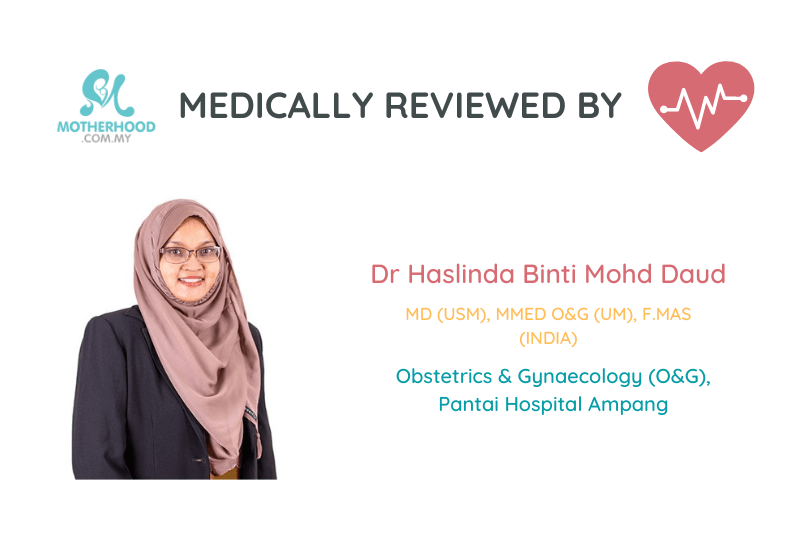
Disclaimer: The information provided in this article is for informational purposes only and should not be considered as medical advice from Motherhood. For any health-related concerns, it is advisable to consult with a qualified healthcare professional or medical practitioner.
For more insightful stories and fun recipes, stay tuned to Motherhood Story!
-
![img]()
Down Syndrome Support Group Gives Hope to Malaysian Youngsters
Zakwan Shah
December 09, 2022
4 min
One in 800 babies have Down Syndrome in Malaysia and many of them grow up neglected and unloved by society. Even with the love and attention of their parents, many Down Syndrome children fail to achieve a good education and fewer still are able to attain careers.
Much of this is through no fault of their own, but the lack of accommodation for special needs people to contribute to society. But fortunately, there have been many support groups that help educate, nurture and this minority community.
One of them is Persatuan Sindrom Down Malaysia (PSDM), whose main objective is to help Down Syndrome children excel in their education and even help them get jobs.
Here are the ways that this non-profit organisation has helped hundreds of Down Syndrome kids flourish in the country.Persatuan Sindrom Down Malaysia
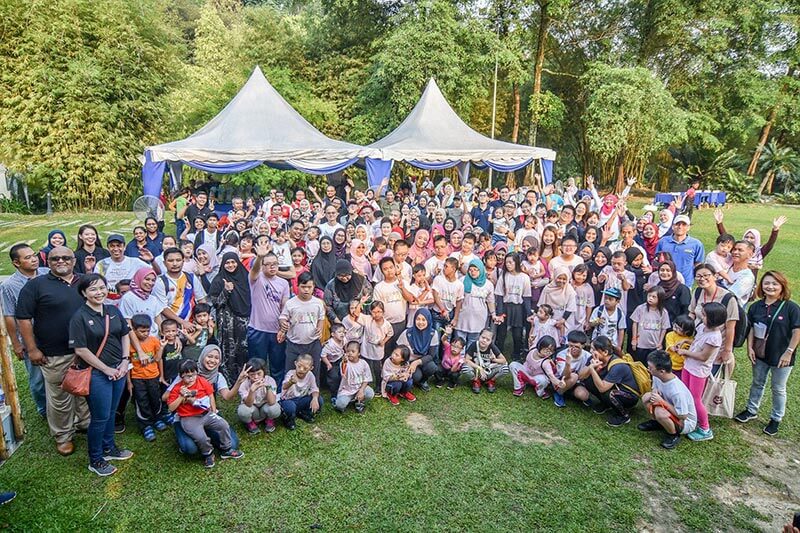
Established in 2001, Persatuan Sindrom Down Malaysia (PSDM) is a non-profit organisation dedicated to assisting, educating and fighting for the rights of individuals with Down Syndrome (SD) in Malaysia, particularly children.
They assist with various aspects including health, welfare, education, vocational/career training and independent living and employment. Their main goal is to help improve the quality of life for children and adults with Down Syndrome.
PSDM focuses on programs that complement existing services. Since their inception, the organisation has focused on two main activities: Early Intervention Programs (PIA) and Basic Career Training Programs (PLAK), through Vocational Classes.
If your child has Down Syndrome and you want to join PSDM, you may sign up using this form.Early Intervention

Part of the organisation’s ongoing contribution to childhood development is through their early intervention programs. Parents who are struggling to raise a toddler with Down Syndrome can stand to benefit from these workshops.
They teach DS children basic and important life skills like writing, speaking, etiquette, and many others. For older children, remedial classes seek to aid their understanding of basic subjects like Mathematics and Science.
For more severe cases, the centre also offers physiotherapy and occupational therapy. Many activities may look similar to basic Montessori exercises which help improve gross and fine motor skills, hand-eye coordination, balance, etc.Training for Life Skills, Career and Independent Living
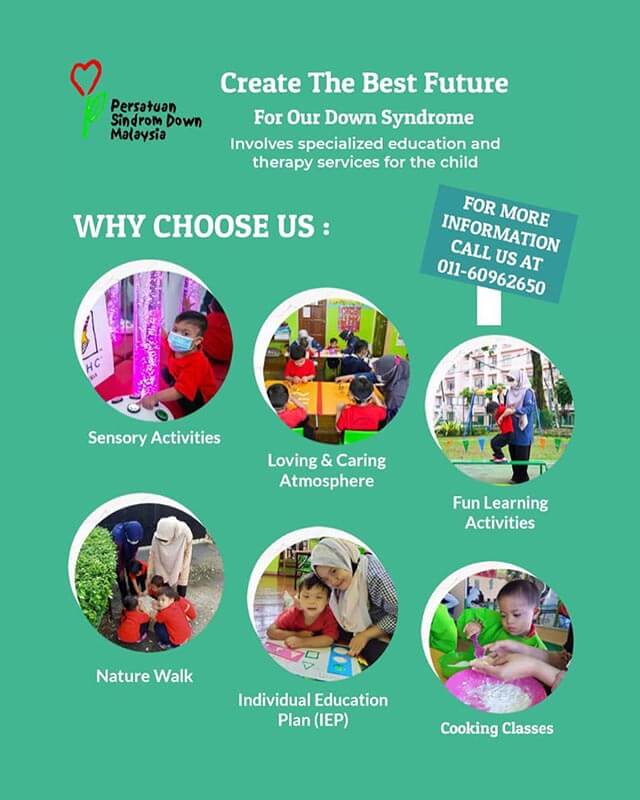
For older DS children who are approaching adulthood, there are courses and workshops that can teach them essential career skills like cooking, cleaning, housekeeping, and many others.
These are vocational courses organised to train talented DS children to earn a living. After all, many DS children are motivated and productive even though our conventional workforce practices may unfairly exclude them from selected industries.
So, in place of traditional college or apprenticeship programs, PSDM offers manageable courses to help DS children hone their expertise at various jobs. Other activities under this initiative involve basic education for independent living.
These all ultimately aim to encourage independent living so that DS children can perform basic day-to-day activities (like bathing, dressing, cleaning and eating) without assistance or supervision.Parent-Child Bonding Activities

PSDM has no shortages of events and on-goings for DS children and their families. Team building, sports days, motivation camps, holiday celebrations, awareness walks, fundraisers, there’s always something for their members to participate in.
But these activities are not just for fun. They also allow DS children to learn new things; from socialising, exercising, and even improving on essential life skills. One of the main benefits of these gatherings is to provide a community for both Down Syndrome children and parents.
It can be hard for DS children to make friends their age due to their physical differences and capabilities. Through events like the Hari Merdeka celebration held just a few months ago, DS children can mingle and expand their social circles with people who truly know the struggle of living with the condition.
These events also give parents the support they need, to exchange advice and words of wisdom, as well as to lend some much-needed comfort and kinship.Volunteers, Donations and Advocacy

Special needs children are unfortunately one of the most mistreated minority groups in the country. They may often be abused, exploited and even denied basic human kindness.
PSDM is one of the many organisations working tirelessly to bring these issues to light so that DS children can get the proper welfare and protection. But that’s not all.
Part of what allows PSDM to continue the good work they do is through the help of local philanthropists and sponsors. The organisation welcomes all forms of donations from companies and individuals as well as anyone who wants to lend a helping hand at their centre.
So, if you are passionate about helping special needs children, perhaps you and your loved ones can consider volunteering at PSDM. Alternatively, you may also make an anonymous donation through their website. Any amount is appreciated.Give Down Syndrome Children a Chance
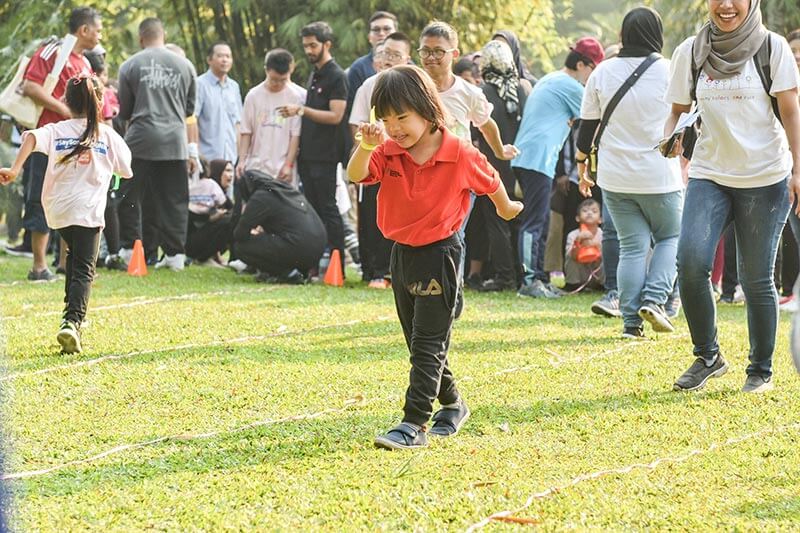
Untoward as this may be to admit, society may at times turn a blind eye on special needs children. Granted, this doesn't always mean that they don't want to lend a helping hand.
Sometimes it may be because they feel helpless and unsure of how to do so or even interact with them. Nonetheless, it is unfair on the children. As a result, they may get left behind at school, neglected by their parents or even denied basic healthcare.
But these gifted youngsters have shown us time and time again that they just as talented, able-bodied and smart as regular people. Many Down Syndrome children grow up to be actors, musicians, fashion designers, Olympian athletes and yes, even college graduates.
It’s time we give Down Syndrome children a chance to show us what they are truly capable of. And its organisations like Persatuan Sindrom Down Malaysia that is paving the way for a better, brighter future for special needs children.
We at Motherhood would like to commend Persatuan Sindrom Down Malaysia on their tireless efforts and hope our article will assist in spreading awareness. The change starts with you and me. What say you?
For more insightful stories and fun recipes, stay tuned to Motherhood Story!
-
![img]()
Why Skin-to-Skin Is Important for Mother-Child Bonding
Zakwan Shah
January 06, 2023
3 min
A newborn baby spends most of their first few years in their mother’s embrace: nursing, sleeping and bonding.
If you’re a new mother, you probably want to spend as much time with your new baby before you have to go back to work. Well, nothing forges a more lasting connection between mother and baby like skin-to-skin contact.
You may have heard of the term 'golden hour', the first hour after birth when a mother enjoys uninterrupted skin-to-skin contact with her newborn. It's a maternal experience that helps the baby grow strong and healthy.
But did you know it’s also important to continue providing this physical connection as your baby continues growing? Here are a few reasons why.Importance of Skin-to-Skin Contact for Mother-Child Bonding
There is overwhelming scientific evidence on the importance and benefits of skin-to-skin contact between mother and baby. Read on to learn more about them.Reduces Stress
 Image credit: QV Baby
Image credit: QV Baby
Skin-to-skin contact can greatly help reduce cortisol levels in humans, helping us feel safe and calm. We experience this when we hug someone or show physical affection.
For a baby, this form of comfort and connection helps them relax, sleep better and cry less. This is thanks to a chemical called oxytocin, which is released when we experience physical touch, especially by someone we love.Increases Bonding
 Image credit: QV Baby
Image credit: QV Baby
The same hormone that reduces stress also increases bonding.
Oxytocin, also known as the love hormone, allows a mother and her baby to form a strong, lasting emotional connection with another on a molecular, chemical level. This hormone may explain why we tend to be closer with our mums even as adults.Facilitates Breastfeeding
Oxytocin also helps with helping the mother produce more breastmilk. This is one of the reasons why a mother and newborn should never be separated for long periods of time after birth.
If you’re still nursing and struggling with breastfeeding, try cuddling with your baby more often. It will increase your output.Promotes Health
 Image credit: QV Baby
Image credit: QV Baby
Skin-to-skin contact helps a baby in many ways. It boosts immunity, improves oxygen saturation, regulates temperature, stimulates digestion and assists with cognitive and physical development.
Babies with medical conditions who experienced ample maternal cuddling also experienced shorter hospital stays. Such is the healing power of a mother’s touch.Create Touching Moments with QV Baby
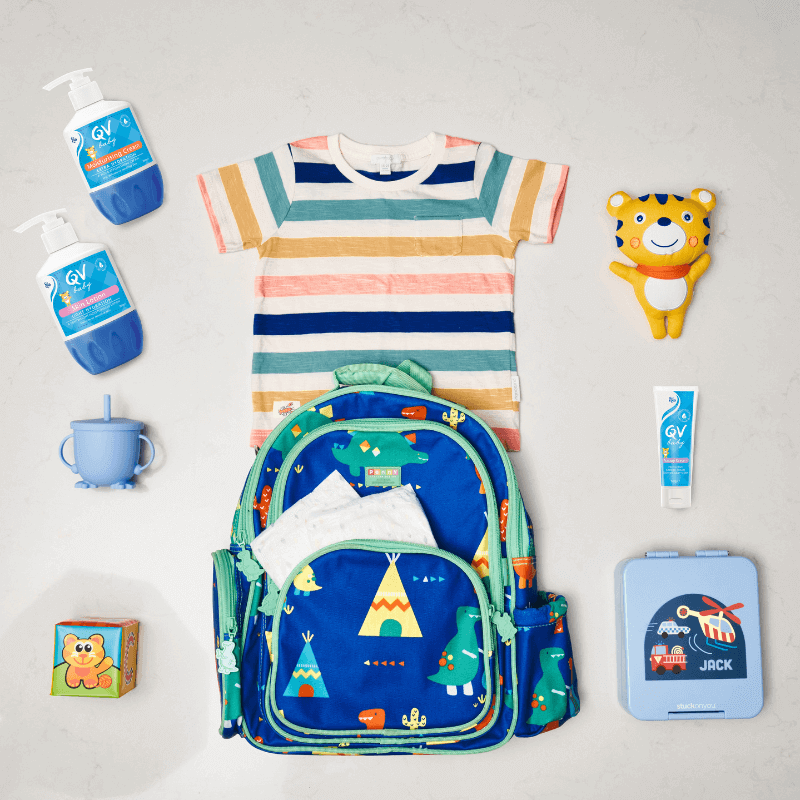 Image credit: QV Baby
Image credit: QV Baby
Introducing QV Baby, your go-to skincare brand for baby bonding. QV Baby skincare products consist of a range of moisturisers specially developed for babies’ delicate skin.
Every QV baby product is free from colour, fragrance and other common irritants, so nothing comes between you and your baby.Include QV Baby products in Your Baby’s Skincare Regime
 Image credit: QV Baby
Image credit: QV Baby
Supplement your bonding activity with QV Baby’s line of infant skincare. Nourish and moisturise their skin all while creating long-lasting memories with your bundle of joy.
Here are some essential skincare products that you simply must include:QV Baby Moisturising Cream
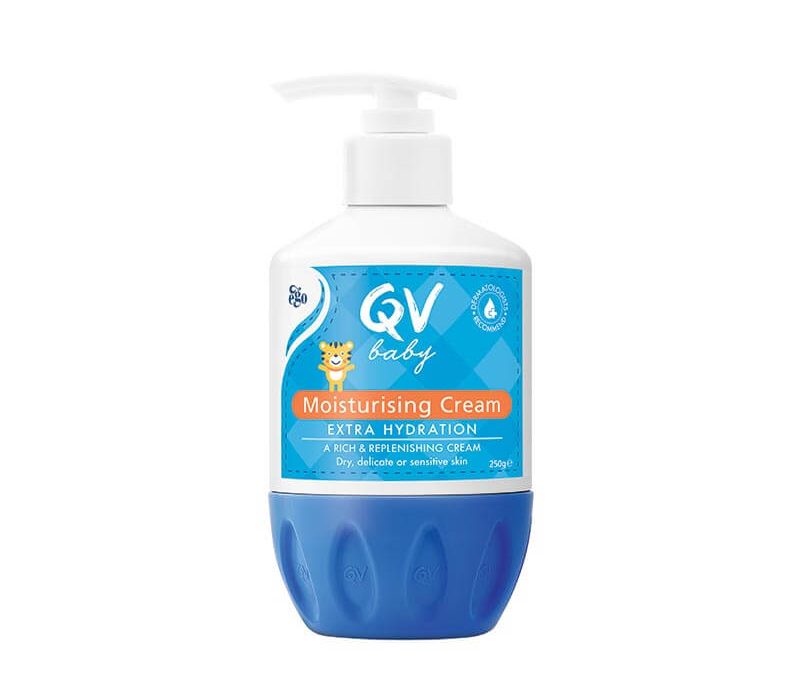
This rich moisturising cream helps replenish baby’s skin and relieve dry areas. It contains squalane, a component found in the skin’s natural oil. Benefits include:- Rich & replenishing moisturising cream for everyday use
- For dry, delicate or sensitive skin
- With Vitamin B3 to help support the skin barrier
- Contains 5 moisturisers and provides up to 24-hour hydration
- Non-greasy and pH balanced
QV Baby Skin Lotion
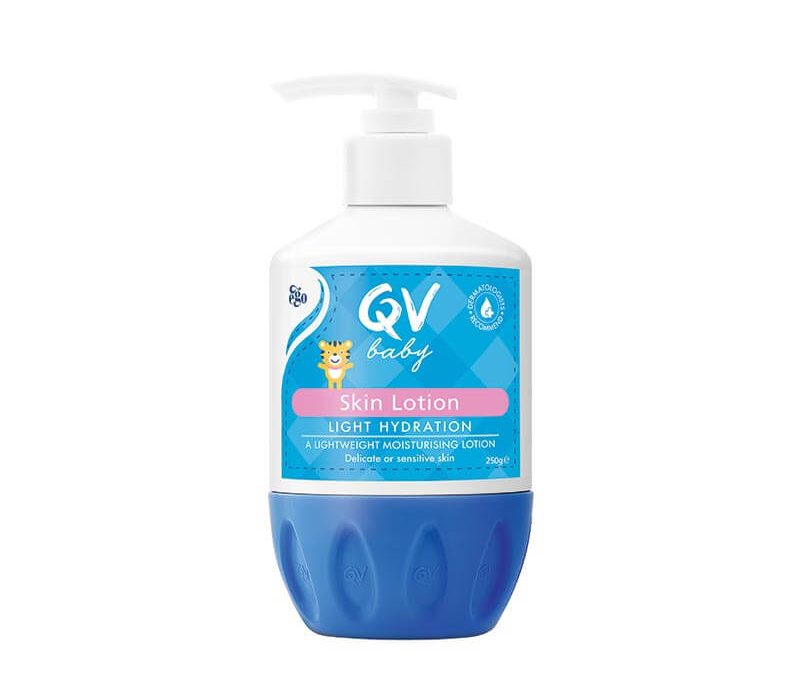
A soothing, light moisturiser that helps relieve baby's dry skin. QV Baby Skin Lotion is suitable for use every day, and for sensitive skin and flaking or itchiness due to dry skin conditions. Benefits include:- Light moisturiser for everyday use
- For delicate or sensitive skin
- With Vitamin B3 to help support the skin barrier
- Provides up to 24-hour moisturisation
- Non-greasy and pH balanced
QV Baby Nappy Cream
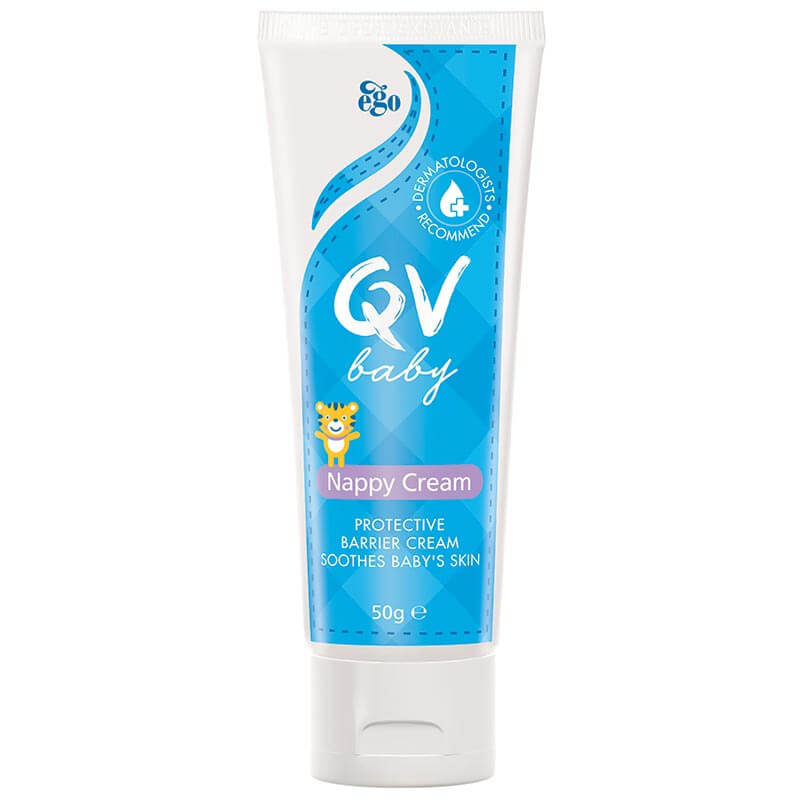
A soothing, rich, protective nappy cream that helps protect baby’s delicate skin against irritation. Benefits include:- Non-sticky, non-greasy protective cream
- pH-balanced, low-irritant formulation which is free from lanolin and perfume, and is suitable for sensitive areas of the body
- Moisturising formulation helps to rehydrate skin and prevent moisture loss.
But don't just take our word for it. Check out what other mums from our MamaCubaTry Program had to say about QV Baby products here!
https://www.youtube.com/watch?v=vVhGuPptUrk
QV Baby products are available in all leading pharmacies in Malaysia, and at QV Official Stores on Motherhood.com.my, Lazada and Shopee.
Do visit their official website more information on products and promotion details.
For more insightful stories and fun recipes, stay tuned to Motherhood Story!
-
![img]()
What You Can Do to Manage Iron Deficiency Anaemia
Rachel Yeoh
March 17, 2023
1 min
Did you know? According to a systematic review of Iron Deficiency Anaemia (IDA) among pregnant women in Malaysia, its numbers range from 19.3% to 57.4%1.
But despite how common it is, many women who have IDA often may not know they suffer from it.What is IDA
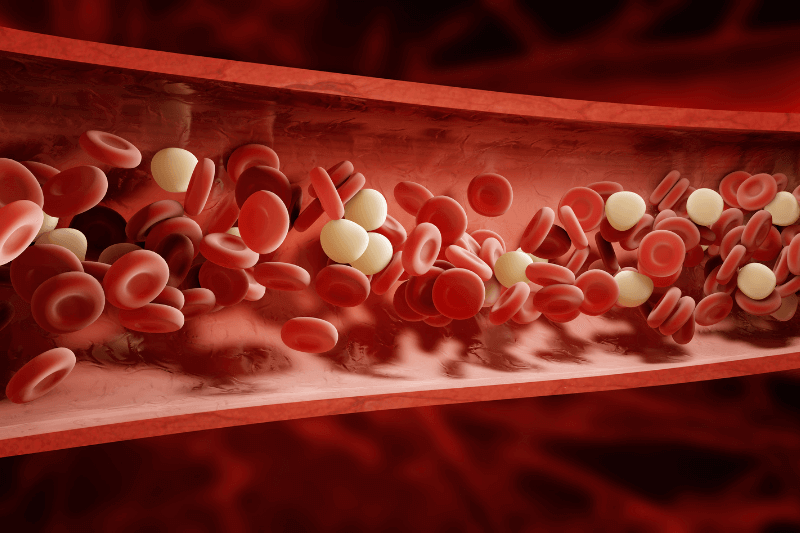
It is basically a common type of anaemia where the body does not contain enough sufficient iron to produce sufficient haemoglobin. Haemoglobin is the important protein in your red blood cells that is responsible to carry oxygen across your whole body.What Are the Symptoms of IDA
One of the best ways to know if you have IDA is to confirm it with your doctor. But first, take note of the possible symptoms.
They include fatigue, loss of stamina, shortness of breath, weakness, and light-headedness. If people are telling you that you are getting pale, that might be a sign for you to double-check with your doctor.
So, take a few days to be aware of what your body is telling you. Your quality of life may be affected by the symptoms of untreated iron deficiency anaemia.
Iberet® Folic 500 is an oral iron preparation indicated in pregnancy for the prevention and treatment of iron deficiency anemia where there is a concomitant deficient intake or increased need for the B-complex vitamins (including folic acid)3.
Iberet® Folic 500 helps fight symptoms of iron deficiency anaemia with special technology:- 105mg optimal dose of elemental iron
- Vitamins C to help support iron absorption
- A supplement formulated with special sustained release Gradumet® Technology that releases the iron at the duodenum for better iron absorption and lesser gastric irritation.
For more information, please visit https://www.iberet.my.References:
- Abd Rahman, R., Idris, I. B., Isa, Z. M., Rahman, R. A., & Mahdy, Z. A. (2022, April 15). The prevalence and risk factors of iron deficiency anemia among pregnant women in Malaysia: A systematic review. Frontiers in nutrition. Retrieved February 6, 2023, from https://www.ncbi.nlm.nih.gov/pmc/articles/PMC9051477/
- Iberet Malaysia PI, Oct 2022
KKLIU 0316/2023 (Exp: 31 December 2025)
Navigation
Our menu boxes are very flexible and easy to use




